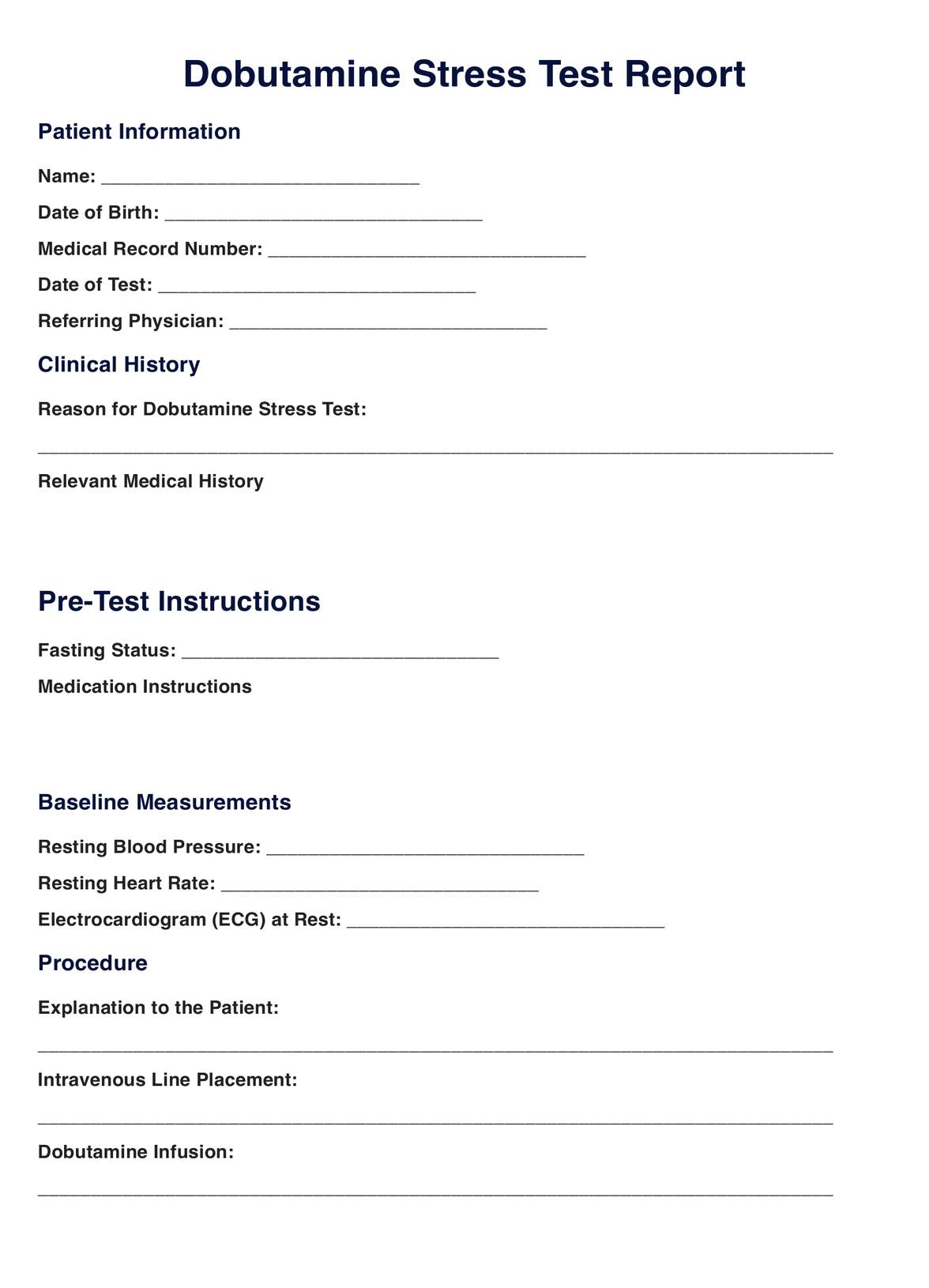A Dobutamine Stress Test is a diagnostic test used to show heart failure and assess heart function and how well the heart functions under stress. It is often employed when a patient cannot perform traditional exercise stress testing after heart surgery.

Dobutamine Stress Test
Optimize Dobutamine Stress Test reporting with our streamlined, comprehensive, and tailored template for medical professionals. Download now!
Use Template
Dobutamine Stress Test Template
Commonly asked questions
Individuals who cannot perform traditional exercise stress tests, such as those with physical limitations, may undergo a Dobutamine Stress Test.
Other stress tests include exercise stress testing, stress echocardiography, and nuclear stress testing. The choice depends on the patient's ability to exercise, physical condition, cardiac status, and the specific information needed.
EHR and practice management software
Get started for free
*No credit card required
Free
$0/usd
Unlimited clients
Telehealth
1GB of storage
Client portal text
Automated billing and online payments











